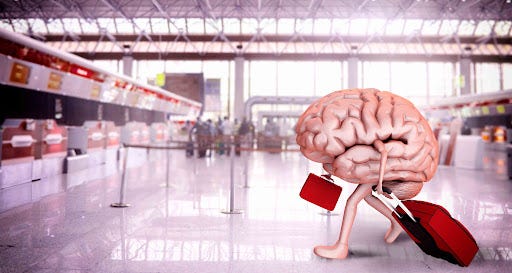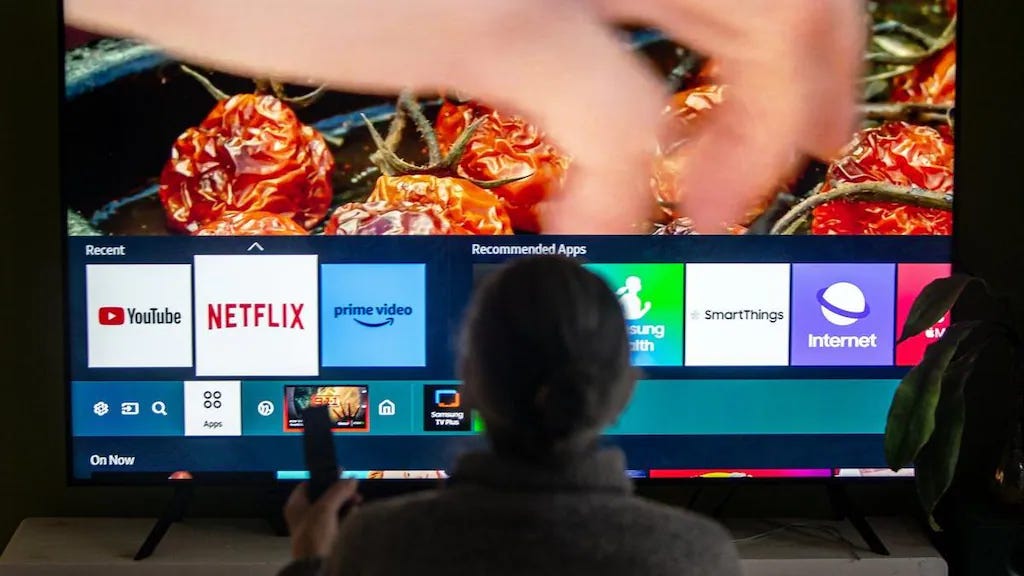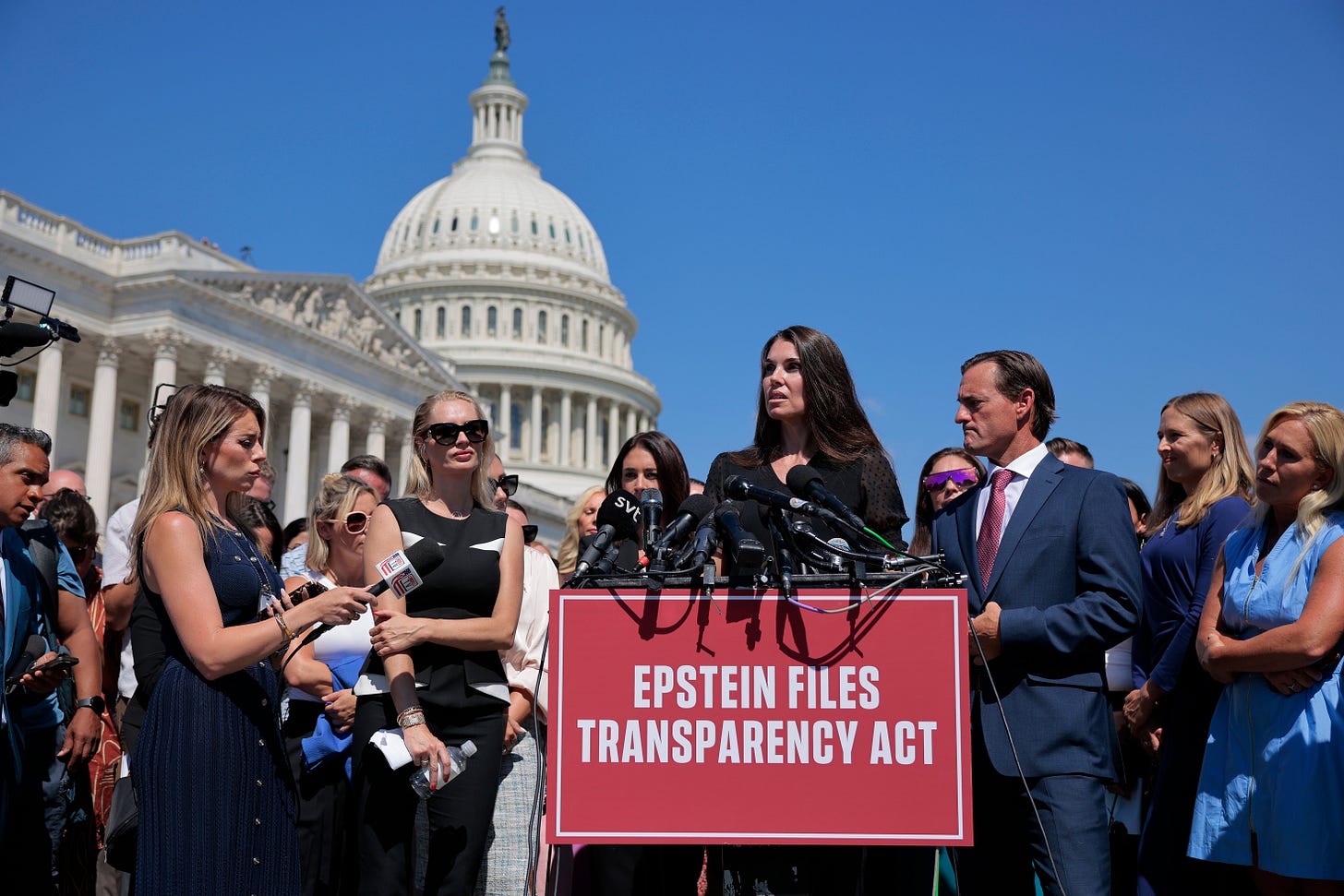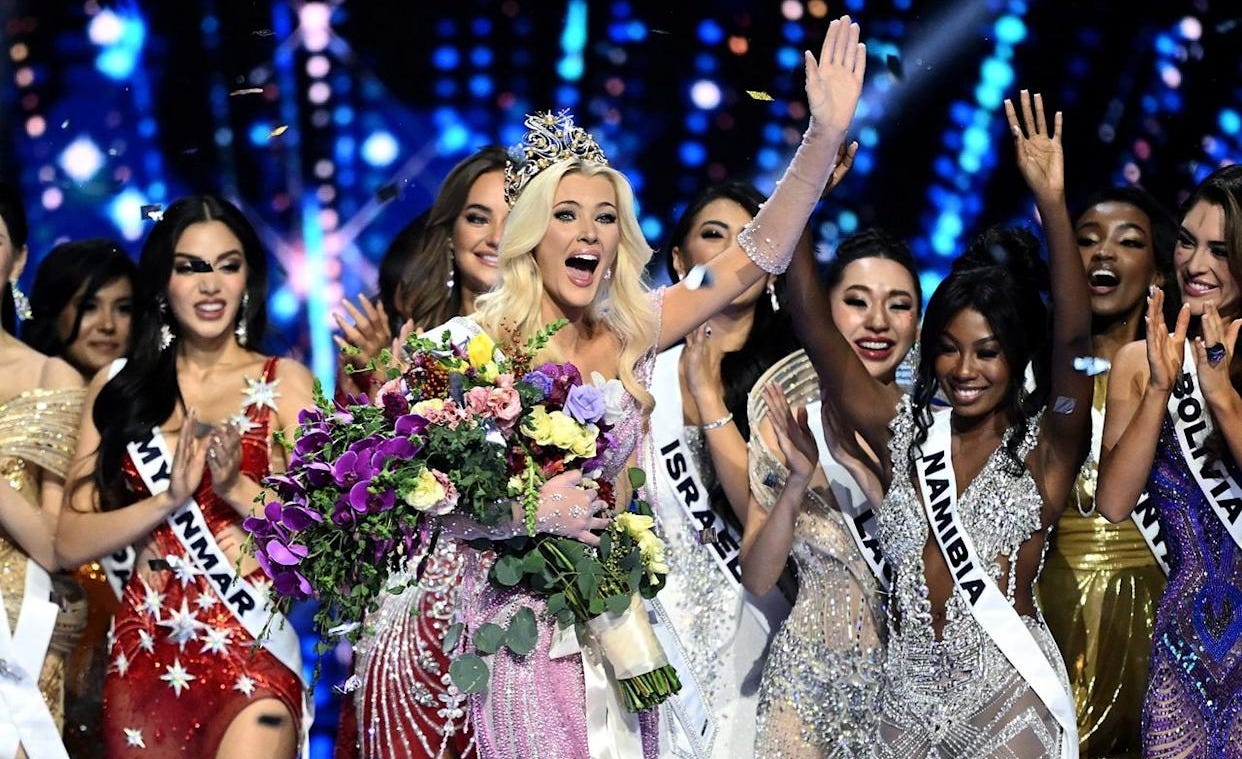Good morning, it’s Wednesday, November 19th. In today’s news, Canada’s talent drain is getting worse, CRTC starts battle over culture, trade, and control, BC human rights chief says drug guardrails are “racist” and “colonialist,” US House and Senate vote to force release of Epstein files, and much more.
First time reading the daily blend? Sign up here.
Record Immigration In, Skilled Immigration Out: Canada’s Talent Drain Is Getting Worse
Everyone in Canada knows that Ottawa has opened the immigration floodgates. It’s impossible not to notice. However, what no politician will dare say out loud is that the country is failing to keep the people who are supposed to drive its future. The new data from the Institute for Canadian Citizenship shows something that should worry anyone who cares about the country’s long-term prospects: the most skilled immigrants are the most likely to leave.
The numbers are clear. The five-year departure rate for all permanent immigrants sits around 5 percent. But for PhDs, it jumps to 11 percent. For health-care workers, it is a staggering 36 percent. For scientists, also 36 percent. Many of the fields Canada says it “urgently needs” are walking out the door almost as fast as they arrive.
Of the sixteen most in-demand professions, ten have below-average retention. Software developers, engineers, executives, cybersecurity experts, architects, finance managers. All gone at above-average rates. These are the people who build firms, drive research, lift wages, and keep a modern economy from falling behind. They come here, look around, and decide they can build a better life somewhere else.
Politicians keep telling Canadians that immigration is the key to growth. But what does that claim mean when the very people who can drive that growth leave within a few years? The truth is harder than the talking points. We are not keeping high-skilled newcomers because the country does not offer the conditions that high-skilled workers need. High taxes. Slow permits. Unaffordable housing. Long healthcare wait times. A shrinking economy. The best and brightest can choose where to live. They are making their choice.
So the question this raises is: with record-breaking immigration levels, who is actually staying?
Canada has built an upside-down system. It brings in huge numbers, yet bleeds out the workers who could strengthen the country. Meanwhile, the federal government keeps pointing to headline figures and calling it success.
If Canada cannot keep its scientists, nurses, and builders, then the scale of the intake means little. A country that cannot hold talent cannot claim to be building for the future. Source.
CRTC Expands Definition of ‘Canadian Content’—Starts Battle Over Culture, Trade, and Control
The CRTC has unveiled a major update to what counts as “Canadian content,” expanding the list of creative roles that qualify a film or TV production as Canadian while explicitly banning artificial intelligence from filling any of those positions.
The updated points-based definition now includes roles like showrunner, special effects director, head of costuming, and makeup and hair artists. Directors and screenwriters remain the highest-value positions. AI cannot be used in any role that earns points—only human creators qualify.
The new rules apply to traditional broadcasters and online streaming services. Foreign platforms like Netflix and Disney+ will now face tougher requirements:
At least 20% Canadian ownership in joint productions
More key creative roles filled by Canadians
Higher thresholds for CanCon points
The goal, according to the CRTC, is to “support Canadian creators” and push more Canadian-led stories onto screens.
The Fallout: This Isn’t Just About Culture
The United States is already frustrated. Senior Trump administration officials have called Canada’s content rules a trade irritant, and 18 Republican lawmakers have formally complained the Online Streaming Act discriminates against US companies. That tension now grows.
The CanCon overhaul also affects Canadian creators. Under Bill C-11, the CRTC has the power to boost officially recognized Canadian content and bury other creators—including independent YouTubers and podcasters. Critics, including Pierre Poilievre, warn this is functionally a censorship regime that decides what Canadians see online.
And another shoe is about to drop: the CRTC’s next ruling—mandatory spending on Canadian content, including news—will be released soon, raising even bigger questions about funding, control, and free expression.
Why It Matters for Canada
This update may create more jobs for Canadian creatives, but it also risks:
Higher costs for productions
Less foreign investment
Bigger trade fights with Washington
More regulatory power over what Canadians can watch
Reduced visibility for independent online creators
In short: Ottawa says this is about protecting Canadian culture. But the real impact may be tighter government control over digital media, growing tension with the US, and fewer choices for Canadian audiences.
B.C. Human Rights Chief Says Basic Drug Guardrails Are “Racist” and “Colonialist”
British Columbia has finally said what everyone can see with their own eyes: decriminalizing hard drugs was a mistake. But as the province begins to pull back from the edge, its own Human Rights Commissioner has stepped in with a message that belongs in a poorly written SNL skit, not a province losing five people a day to overdoses. Her office has declared that any return to basic guardrails around drug use is “racist,” “colonialist,” and a breach of human rights. In other words, the crisis is not the crisis. The crisis is how you talk about it.
The commissioner, Kasari Govender, claims that even calling it an “overdose crisis” is hateful because it suggests that fentanyl, meth, and heroin might be unsafe. The real problem, she says, is “unknown toxic substances” added by dealers. Addiction, in her view, has little to do with the drugs themselves and everything to do with old wrongs like racism and wealth gaps. And since “punitive tactics” have failed, she argues that the province should go further down the same path that already made the problem worse.
This vision ignores the fact that incentives shape behaviour. When the state tells people that drug use is normal, when it hands out free opioids, and when it strips police of the tools needed to deter dealers, the result is what we see now in B.C. A drug scene that has spilled out into the streets. Downtown cores that look half abandoned. More deaths, not fewer.
Even Premier David Eby has now conceded that decriminalization built a “permission structure” that taught addicts they could use anywhere. The province rolled back its safe-supply program after finding that much of the free supply was resold on the street. That alone should have ended the debate. Yet the commissioner insists that more of the same will somehow fix the mess.
This is not just a local error. It sits inside a wider storm. Western nations are drowning in synthetic opioids made or enabled by the Chinese Communist Party. Fentanyl is not only a drug. It is a tool. A cheap way for a rival power to rot out the social foundations of countries it seeks to surpass. And Canada’s federal response has been to hand out more drugs, run soft-on-crime courts, and free traffickers as fast as police can catch them.
The crisis did not grow from stigma. It grew from surrender. And until our leaders treat this as the threat it is, the death count will rise. Source.
US House Votes 427–1, Senate Votes Unanimously to Force Release of Epstein Files
The Senate unanimously approved a bill forcing the Department of Justice to release a wide range of Jeffrey Epstein–related files, after the House passed it 427–1. The Epstein Files Transparency Act requires the DOJ to publish all unclassified documents, communications, and investigative materials in a searchable format within 30 days, and bars the department from delaying, redacting, or withholding information for political or reputational reasons.
Sensitive material—such as victim identities, child sexual abuse content, images of physical harm, or anything that could compromise ongoing investigations—can still be withheld, but every redaction must be justified in writing and submitted to Congress. The bill also mandates that the attorney general provide a report listing which records were released, which were withheld, and naming any government officials or politically exposed persons referenced in the files.
President Trump has urged Republicans to back the legislation, saying he supports full transparency and will sign the bill. Lawmakers from both parties say the measure is necessary to ensure accountability and justice for the victims exploited by Epstein and his associates. More
Alberta Invokes Notwithstanding Clause to Shield Gender-Transition Laws for Minors
Alberta’s UCP government has introduced Bill 9, invoking the notwithstanding clause to protect three laws on minors’ gender transitions from legal challenges for up to five years. The laws bar under‑18s from gender transition surgery, require parental consent for students under 16 to change names, pronouns, or attend gender‑identity lessons, and restrict girls’ sports to those born biologically female.
Premier Danielle Smith says the move safeguards children’s health and ensures parental involvement, while Justice Minister Mickey Amery claims the laws have broad public support. Opponents, including LGBT advocacy groups and Alberta NDP leader Naheed Nenshi, argue the laws infringe on medical freedom and identity rights and vow to continue legal challenges despite the clause. More
China and Japan Are In a Vicious Game of Chicken Over Taiwan - Japan’s new prime minister sparked a furious backlash from China after saying Japan could use military force to defend Taiwan, escalating tensions and signalling that China–Japan relations are likely to deteriorate further. More
Polish PM: Two Ukrainians Working for Russia Were Behind the Warsaw-to-Ukraine Rail Sabotage - More
Saudi Crown Prince Pledges $1 Trillion Investment in US During Meeting With Trump - More
Palestinian Flag Raised at Toronto City Hall and In Other Communities Across Canada - More
608 Defendants Charged in Theft of $2.3 Billion From 1 Million American Seniors - Some of the top schemes targeting elders involved investment, romance, government impersonation, and grandparent scams, the DOJ said. More
‘There is So Much Corruption’: Hundreds of Thousands Protest in Manila Over Missing Disaster Funds - More
Massive Outage of Websites Reported as Cloudflare Goes Down
Websites worldwide, including X and ChatGPT, experienced outages due to a Cloudflare server crash. The content delivery network, used by major platforms like Google, Facebook, Microsoft, Amazon, and Shopify, handles traffic for roughly 20% of the internet.
The disruption began after a spike in unusual traffic at 11:20 UTC, causing errors across Cloudflare’s network. Services affected in the US included X, Spotify, OpenAI, AWS, Verizon, YouTube, DoorDash, Zoom, Google, and Reddit. Downdetector itself was briefly unavailable. Some sites remained down into the morning.
Cloudflare confirmed the issue has been fixed and is continuing to monitor traffic. The cause of the unusual spike is still under investigation, and it’s unclear whether a cyberattack triggered the outage. More
Auto Theft Costs Canadians $1 Billion Annually - The Toyota RAV4 was the type most sought by thieves last year. More
CMHC: New Home Construction Dropped 17% in October - More
Judge Rules Meta Does Not Hold Illegal Monopoly in Social Media Networking - This will keep Facebook, Instagram, and WhatsApp all under Meta’s corporate umbrella. More
Evolution Is Not Neutral: New Study Challenges 60-Year Biology Theory
For decades, scientists thought most genetic mutations were basically “background noise”—neither good nor bad. A new study shows that beneficial mutations happen a lot more often than we thought, but here’s the twist: they rarely stick around. Why? Because the environment keeps changing, so a mutation that’s helpful today could be harmful tomorrow.
In experiments with yeast and bacteria, researchers found populations are always chasing a moving target, never fully “perfectly adapted” to their surroundings. Even humans might carry genes that made sense for our ancestors but aren’t ideal for modern life. Evolution, it turns out, is messier and more unpredictable than we thought. More
Report: Canada’s Research and Scientific Spending Is Declining Relative to Other Nations - More
Daily Music Listening Linked to Big Drop in Dementia Risk - More
Miss Universe Under Fire Over Alleged Pre-Selection of Top 30 Finalists
Miss Universe is facing controversy after musician and judge Omar Harfouch resigned, claiming the Top 30 finalists were pre-selected before the preliminary rounds, allegedly by an unofficial panel with conflicts of interest. Contestants said they were blindsided by the revelation, calling it “heartbreaking” after a year of preparation, and criticized the organization for a lack of transparency and fairness.
The Miss Universe Organization denied the claims, insisting no outside jury was involved and that all judging followed official protocols. An investigation is pending. More
End of an Era: LeBron Closes Door on ‘28 Olympics; Curry ‘Highly’ Doubts Playing - More
NBA Fines Cavaliers $100K for Resting All-Stars Donovan Mitchell, Evan Mobley for Road Game Against the Heat - More
Entertainment Duo the Kessler Twins Elect to Die Together by Assisted Suicide, at Age 89 - More
Cambridge Dictionary Names “Parasocial” 2025 Word of the Year: One-Sided Emotional Connections With Celebrities, Influencers, and AI
A DIY Enthusiast Powered His Entire Home for Eight Years Using Solar Panels and 1,000+ Recycled Laptop Batteries
On This Day in 1863, US President Abraham Lincoln delivered the Gettysburg Address at the dedication of the Soldiers’ National Cemetery in Gettysburg, Pennsylvania, famously beginning with: “Four score and seven years ago…” This brief but powerful speech redefined the nation’s purpose during the Civil War and emphasized liberty, equality, and democratic ideals.



















The public in Alberta widely supports the UCP transgender laws. Anyone that doesn’t is ill informed.